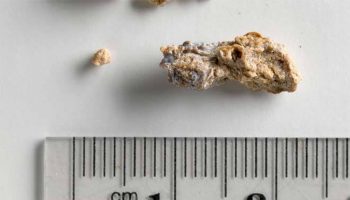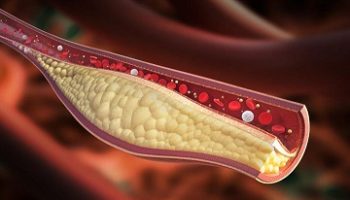COW HIDE: THE TRUTH
Ponmo (cow hide) is considered the poor people’s meat mostly in Nigeria. In past times, diabetics and hyperlipidemic patients were advised to use it as a worthy substitute to redd meat allegedly for its low fat content. Thanks to enlightenment, pomno has been discovered to contain high amount of fats, if you doubt it, place a piece of ponmo/canda in hot water and you would see the fat clearly on the surface. Canda has also been found to contain protein, although of low biological value.
Protein Content of Cow Hide
How nutritious are these parts of the meats? Protein is made up of amino acids and the body uses 20 amino acids to function, some of which the body can make (non- essential) and the essential amino acids that must be obtained from food eaten.
Protein is divided into two groups based on the amount of essential amino acids present in them. The groups are: protein of high biological value or high-quality protein or complete protein and protein of low biological value or low-quality protein or incomplete protein.
High and low proteins
The foods that are classified as protein of high biological value are foods from animals such as cheese, milk, eggs, beef, chicken, fish, with the exception of animal foods with high collagen protein or high gelatin content such as cow foot, chicken foot, pig’s tail, oxtail and cow skin – the sticky meats.
There is an exception to the rule, in that soybeans, a plant source is of high biological value because it has all the essential amino acids that are found in meat of high biological value. Hence, soybeans and its products are excellent sources of protein. The foods that are classified as low biological value are plant sources such as peas, beans, nuts, oxtail, cow foot and pig’s tail, because they lack one or more of the essential amino acids.
(adsbygoogle = window.adsbygoogle || []).push({});
Foods such as oxtail, cow hide and chicken foot have a low-protein quality and should be prepared and consumed with peas, beans and other vegetables to improve the protein content of the meal.
Skin Problems :
According to a post on Punch, the Director-General of the Nigerian Institute of Leather Science and Technology, Zaria, Kaduna State, Dr. Isuwa Adamu, on Tuesday warned against the consumption of animal hides and skin, known locally as ponmo. He said: “it is not advisable for you to consume ponmo in the sense that some of the animals killed and used for ponmo actually have skin diseases. Some of these skin diseases are such that boiling them ordinarily may not kill the bacteria,’’.
Treatment Method :
In addition to this, during the production process of ponmo, the hides and skin are usually subjected to naked flames so as to enable the hides to burn off the skin. During the burning process, a lot of different unhygienic substances such as trash, wood, charcoal, rubber tires and so on, are thrown into the furnace to sustain the blazing heat.
As the furnace burns, the combusting wood, gas, or charcoal emits chemicals known as polycyclic aromatic hydrocarbons (PAHs), which finds its way into the smoked food and contaminates it.
Exposure to PAHs is known to cause skin, liver, stomach and several other types of cancers in laboratory animals. In addition to this, epidemiological studies have found a positive statistical correlation between intestinal tract cancer and frequent intake of smoked food. These studies have also linked occupational exposure to PAHs to cancer in humans.
Embalming Chemical:
Formaldehyde is often used in preservation of cow hide. However, the danger in eating anything that has been laced with embalming fluid, according to Abolanle Kayode, a biochemist at the department of Chemical Sciences, Bells University of Technology, Otta, is very grave.
He disclosed that though there are many types of embalming fluid, formalin, which is the most common one, poses health hazard when it comes in contact with food. He disclosed that consumption of food contaminated with formalin can cause abdominal pain, vomiting, diarrhea, unconsciousness, or even death.
Formaldehyde’s effect on pregnancy and the reproductive system, he noted, has been studied in both humans and in laboratory animals. He disclosed that the chemical has been shown to decrease fertility and increase the risk of spontaneous abortions in humans. “In laboratory animals, formaldehyde can harm the developing fetus and damage sperm”, he warned.
Embalming of corpses, the biochemist explained, involves disinfection and preservation of dead bodies using chemical substances which include formalin, among others, adding that the embalming fluid consists of a group of chemicals that include preservatives, germicides, buffers, wetting agents, anticoagulants, dyes and perfuming agents, among others in various proportions to produce the embalming fluid.
He disclosed that Formaldehyde is the commonest preservative used for embalming, noting that anatomists, technicians in histology and embalming laboratories, as well as medical students during their dissection courses, are all exposed to formaldehyde, which in many situations, crosses the threshold for irritation of eyes and upper respiratory tract.”
The biochemist warned that formaldehyde can cause allergic reactions of the skin and the lungs (asthma). Formaldehyde, he also warned, is also a known cause of cancer in humans.
“At higher concentration, it can severely irritate the lungs, causing chest pain and shortness of breath. Repeated exposure to formaldehyde can cause allergic asthma. Formaldehyde solutions can destroy the skin’s natural protective oils, causing dryness, flaking, cracking, and dermatitis (skin rash). Skin contact can also cause an allergic reaction like redness, itching, hives and blisters. As many as one in 20 workers who are regularly exposed to formaldehyde develop an allergic skin reaction. Formaldehyde exposure can cause cancer of the nose and sinuses in humans, as well as some types of leukaemia and lymphoma.”
Some Sources are:
previous article
BREASTFEEDING AND OBESSITY
next article
CAT-FISH: THE “FATTY FISH”
The author Prince
Hi, I’m Prince.. a registered Dietitian, an avid reader and a passionate writer. I hope you enjoy my articles as much as I enjoy writing them






